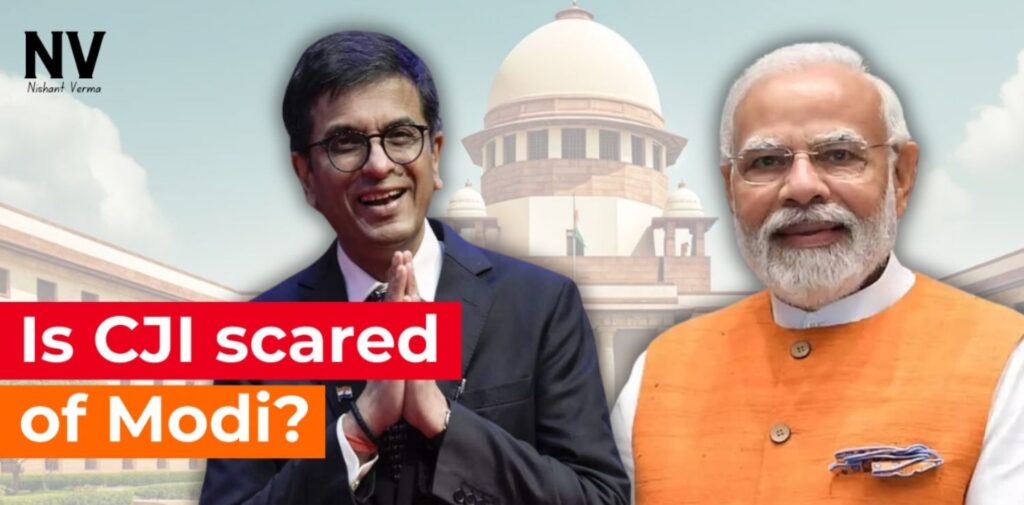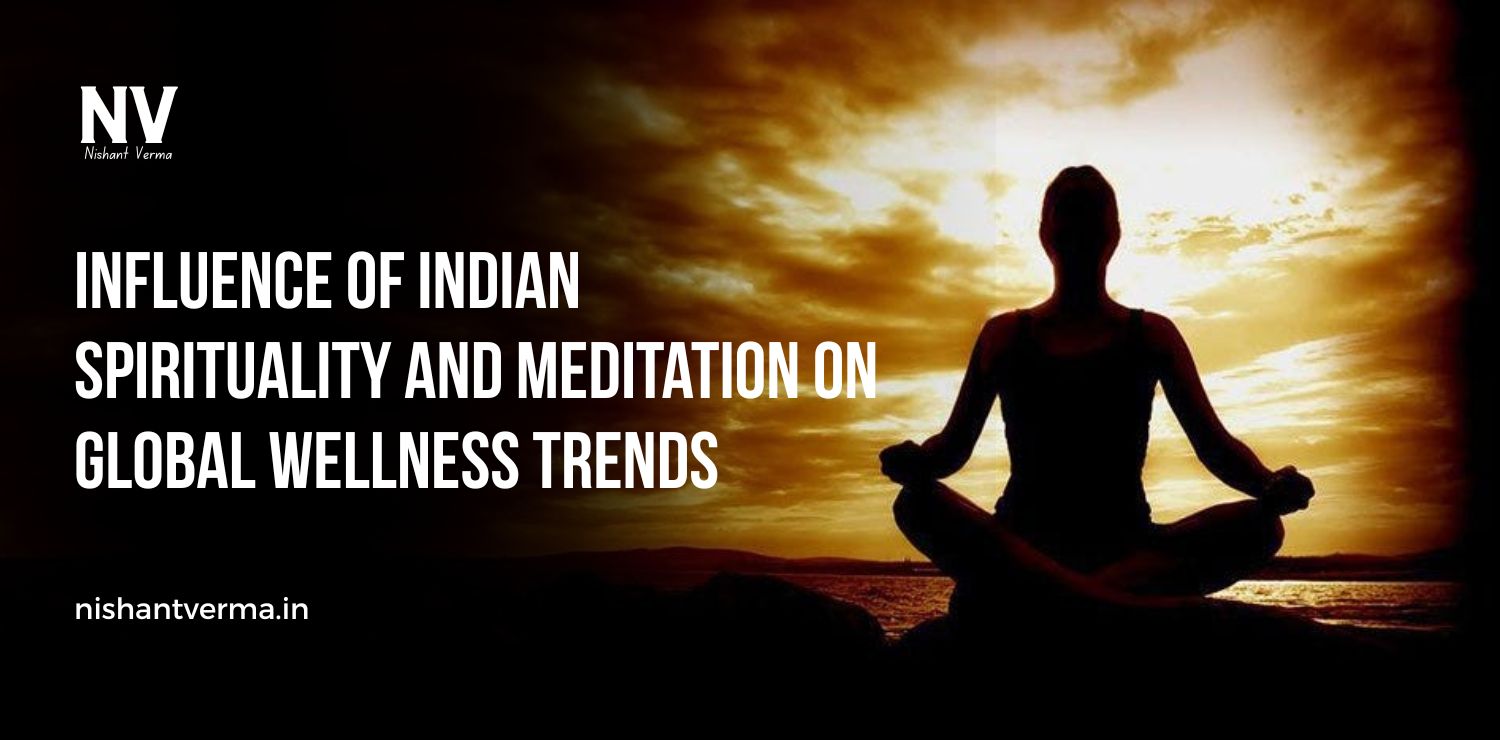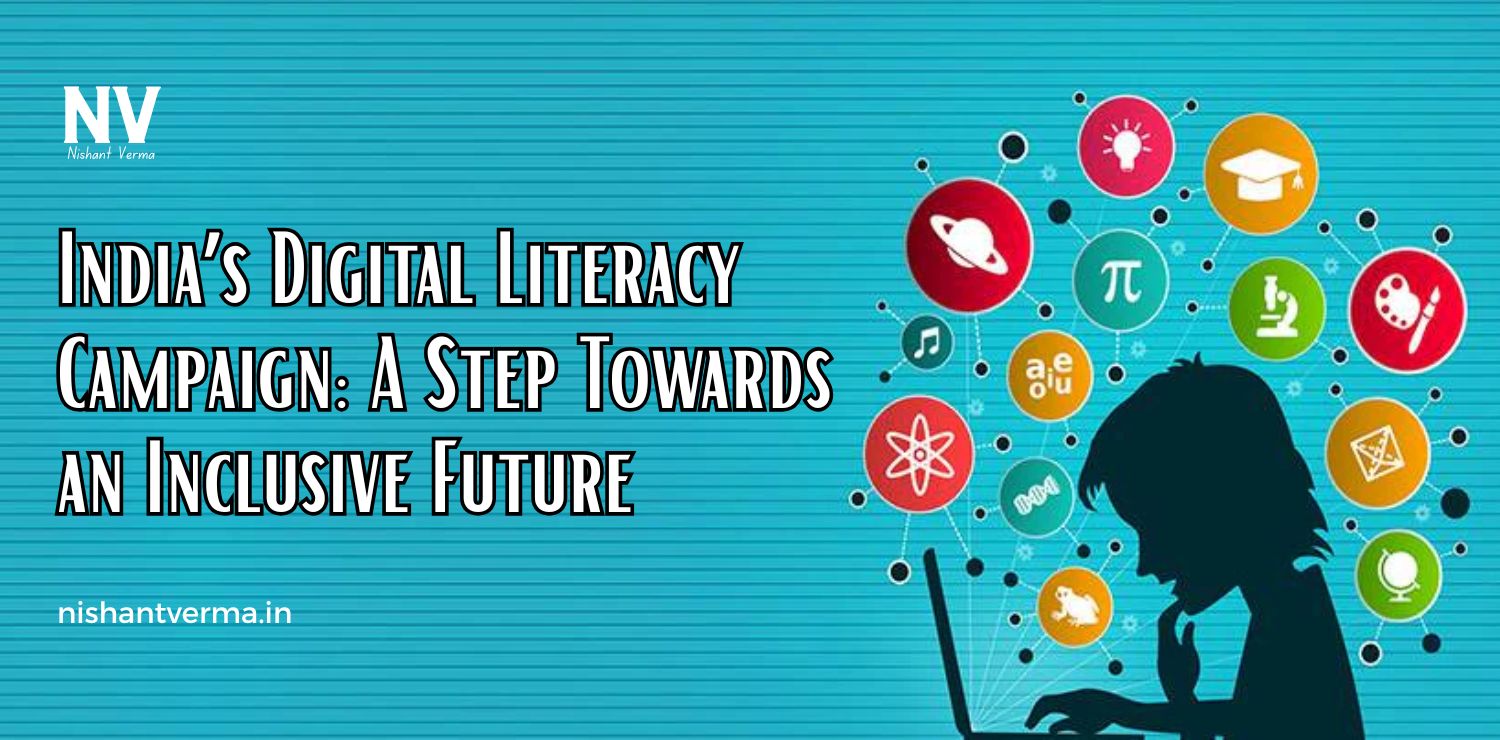The recent visit of Prime Minister Narendra Modi to Chief Justice of India (CJI) DY Chandrachud’s residence during Ganpati Puja has sparked considerable debate. This incident has raised questions about the delicate relationship between the judiciary and the executive, with critics accusing the visit of blurring the lines between these two vital arms of the Indian democracy.
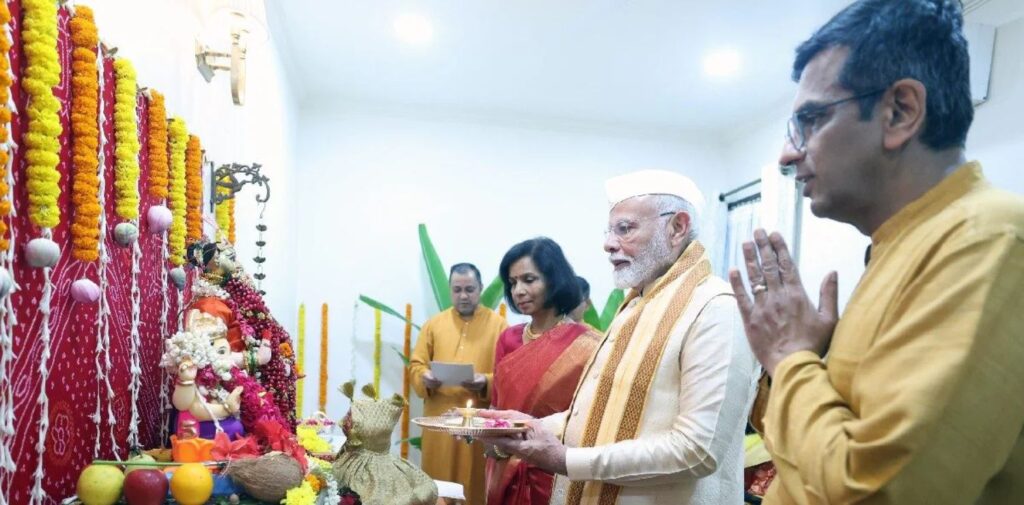
The Event and Its Context
On September 11, 2024, PM Modi attended a Ganpati Puja hosted at CJI Chandrachud’s residence in Delhi. The event, though a private religious gathering, became a flashpoint for criticism, with opposition leaders expressing concerns over the timing and implications of the meeting. Notably, several significant cases involving the central government, including the Maharashtra political dispute, are currently being heard by the Supreme Court, with CJI Chandrachud presiding over some of them. The opposition contends that such proximity between the executive head and the judiciary’s leader compromises the perceived independence of the judiciary.
Criticism from the Opposition
Shiv Sena (UBT) MP Sanjay Raut was one of the first to voice his objections, suggesting that the judiciary’s impartiality could be compromised in cases where the central government, represented by PM Modi, is a party. He called for CJI Chandrachud to recuse himself from cases involving the government to avoid any conflict of interest. Raut’s comments were echoed by other opposition leaders, including AAP’s Sanjay Singh, who accused the Bharatiya Janata Party (BJP) of using religious events like Ganpati Puja for political gains. Many critics, particularly on social media, argued that the meeting could influence ongoing judicial proceedings, particularly with state elections around the corner.
Senior advocate Indira Jaising also criticized the visit, citing the judiciary’s code of conduct, which emphasizes that judges should maintain a degree of aloofness from political figures. She argued that the visit undermined the separation of powers between the judiciary and the executive, a fundamental principle of democracy.
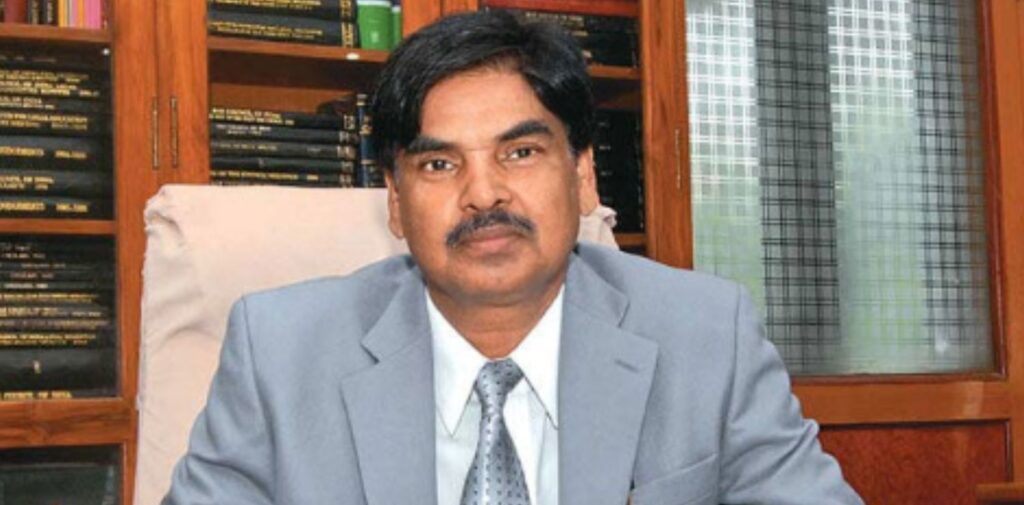
Defense from the Government and Legal Circles
On the other side, BJP leaders, including MPs like Bhupender Yadav and Amit Malviya, defended the meeting, arguing that the event was purely religious and part of Indian secular traditions. They dismissed the criticism as hypocritical, pointing out that similar interactions between political and judicial figures have occurred in the past, such as during Iftar parties attended by former CJIs under Congress rule. They emphasized that such events do not necessarily indicate a compromise of the judiciary’s independence.
Bar Council of India Chairman, Manan Kumar Mishra, also defended the CJI, stating that baseless allegations against his integrity were damaging to the judiciary. Mishra stressed that attending religious functions does not imply judicial bias, and the opposition’s critique was an overreaction.
The Broader Debate: Separation of Powers
At the heart of this controversy lies the principle of the separation of powers—a cornerstone of India’s constitutional framework. The judiciary, executive, and legislature are intended to operate independently to maintain checks and balances within the government. Critics argue that public interactions between high-ranking officials from different branches, especially during politically sensitive times, could erode public trust in the judiciary’s impartiality.
Several legal experts pointed out that while there is no formal rule prohibiting such meetings, the perception it creates could be damaging. Former Union Minister Kapil Sibal, though defending CJI Chandrachud’s personal integrity, suggested that both Modi and Chandrachud could have exercised greater caution. He argued that such publicized events fuel unnecessary speculation and risk tarnishing the judiciary’s reputation, especially in the lead-up to critical state elections.
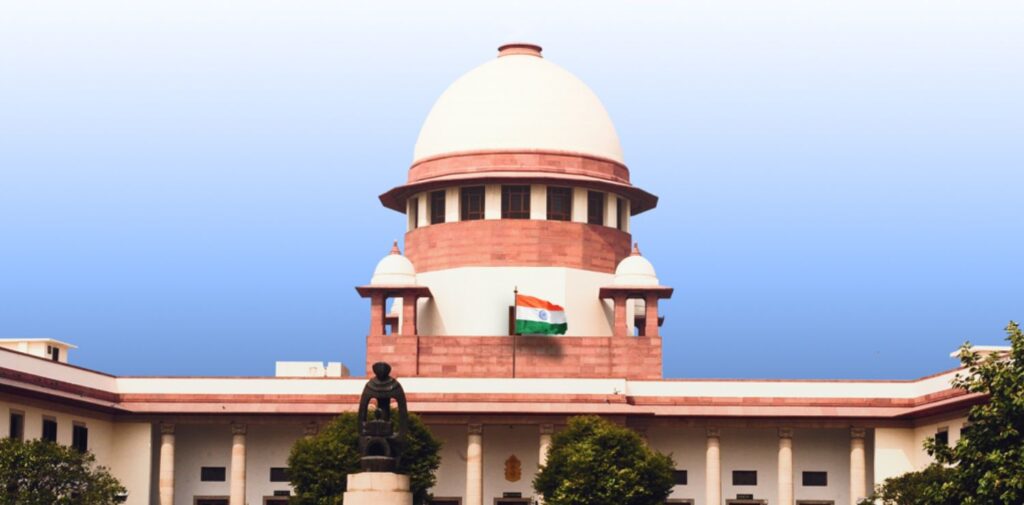
The Code of Conduct for Judges
The controversy also brought into focus the Restatement of Values of Judicial Life (1997), a code of conduct adopted by the Supreme Court of India. This code advises judges to maintain a level of detachment from public figures and political controversies. According to this document, judges are expected to avoid actions that might be perceived as compromising their independence or the dignity of their office. Critics argue that CJI Chandrachud’s participation in a publicized event involving the Prime Minister may have violated these norms, even if unintentionally.
Conclusion: A Complex Dilemma
While the Ganpati Puja at CJI Chandrachud’s residence may have been a private, religious gathering, the political and judicial ramifications of PM Modi’s presence have ignited a significant debate about the independence of India’s judiciary. Both sides—those defending the meeting as a harmless cultural exchange and those condemning it as a breach of democratic principles—have valid points. However, the larger question remains: can public officials maintain their personal and professional lives separate in the eyes of an ever-scrutinizing public, especially when the stakes are as high as they are in this case? As India continues to evolve, balancing tradition with the expectations of democratic transparency and impartiality will remain a challenge for its institutions.

